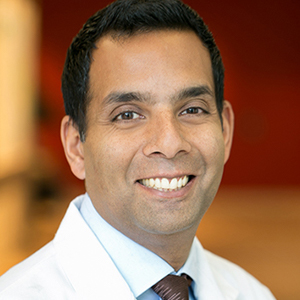Creating culturally specific programs, services and resources for Black older adults in Ontario is a conversation that needs to happen during Black History Month and beyond. After the summer of 2020 when Black Lives Matter protests happened across the world, the question of how to better support Black people was top of mind for many people. But for organizations like the TAIBU Community Health Centre, they’ve been doing this work long before it became a hot topic – in specifically supporting the Black community in Scarborough and beyond for over a decade.
“What makes us unique is our focus on the Black population in the GTA,” Liben Gebremikael, Executive Director of TAIBU Community Health Centre says. “We are Black focused and Black led.”
In addition to having primary care nurses, social workers and other health professionals on hand to provide culturally appropriate and safe services and community capacity programs to advance the work around addressing anti-Black racism, TAIBU also provides critical support to Black older adults. The Ubuntu project, TAIBU’s program for older adults, is routed in the African principle of “I am what I am because of who we all are.” Started in Malvern, the program now operates throughout Scarborough North, reaching 4,000 older adults within the past five years. Now 200 seniors are engaged in activities at different times. The ultimate objective of the project is for older adults to age successfully in the community.
Studies have shown that Black older adults are at risk of developing chronic conditions such as diabetes, hypertension, kidney disease as well as early onset dementia. “Where are the culturally specific programs for Black older adults that focus on these issues? In Black communities, we don’t put our older adults in long term care, care is done at home so the lack of home care causes the burden to fall on the family members,” Liben says. “We need to create programs that are culturally safe so our people aren’t left behind.”
“Our older adults came up with themes that were important to them including around improving chronic disease management, nutrition, computer literacy and caring and visiting programs. We organized older adults into the streams they were interested in, identified leaders and helped them build capacity to become decision makers. These leaders form the Ubuntu Elder Council.,” Liben says. “This approach gives older adults the sense of contribution to their community. Older adults have a lot of knowledge, experience and skills and we wanted to take those skills and apply it towards community development work.”
Older adults running their own programs and taking the lead has proven to be successful, particularly with their computer literacy programs. “Many older adults were interested in computer training to use social media and stay connected to family and friends. The program was led by the older adults and was intergenerational – youth came to work with them at the Malvern library,” he says. “Now the library is changing their curriculum after seeing the success of our program, creating a program for older adults led by older adults.”
In addition to empowering older adults through leadership, the cultural aspect of TAIBU’s programming is central to everything they do. “Knowing our program is led and operated by Black people makes our older adults feel safe. Knowing that it’s for them and about them, they feel empowered to lead and make decisions,” Liben says. “They know this is their program and that’s what makes it successful.”
COVID-19 has hit Toronto’s Black community especially hard. Though TAIBU has moved many programs and services online, many older adults are feeling particularly lonely and isolated. “For years we have been urging our older adults to come out and connect and gather and now we have to tell them to isolate and stay inside,” Liben says. “But we are doing the best we can, connecting our older adults to mental health professionals and providing programs on how to cope.”
And with it being Black History Month, the older adults at TAIBU are still planning to celebrate. “The older adults usually plan our Black History Month events that are day long events with food and performances and singing,” Liben says. “This year our celebration will be online focusing on health and education.”
TAIBU’s work of providing culturally specific programming for Black older adults continues despite a pandemic because as Liben says simply, “It’s beautiful.”
Helpful resources:


